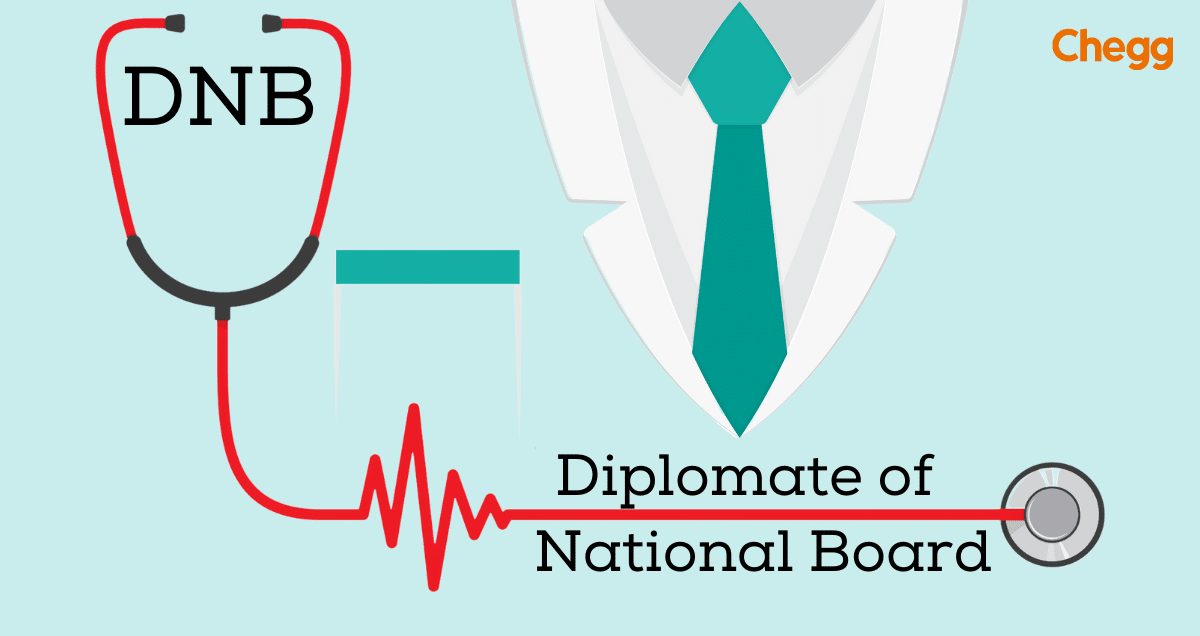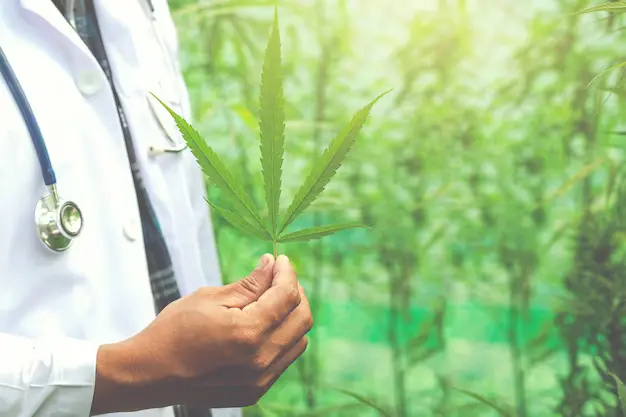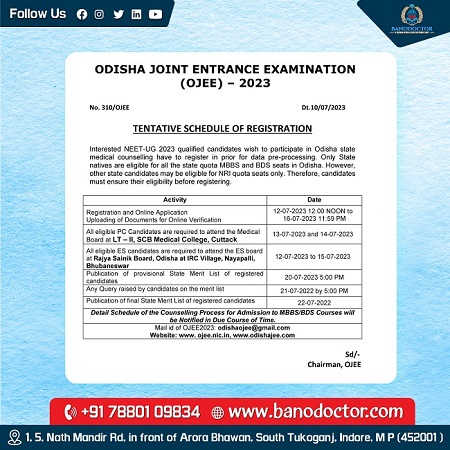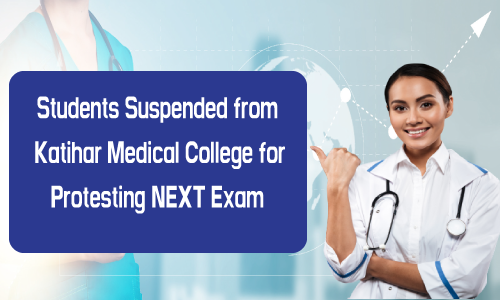
BVSc & A.H Admission 2024, Course, fee, Admission Process, Exams | Bano Doctor is Here to Help You
Introduction of BVSc
BVSc Full form Bachelor of Veterinary Science is a comprehensive 5-year undergraduate degree program dedicated to Veterinary Science. This field focuses on the medical and surgical treatment of animals, disease prevention, and overall animal healthcare.
The BVSc curriculum encompasses essential subjects such as Anatomy, Physiology, Pharmacology, Pathology, Microbiology, Surgery, and Animal Husbandry. Graduates of BVSc commonly pursue careers as veterinarians in clinics, hospitals, research institutions, government agencies, and the agriculture industry.
Prospective students seeking admission to the BVSc course must have completed Class 12 in the Science stream with PCB (Physics, Chemistry, and Biology) subjects. The minimum age requirement is 18 years, with a maximum age limit of 25 years. Admission is based on the NEET entrance examination, which universally accepted by universities offering BVSc programs.
Popular universities offering BVSc programs include Veterinary College (Bangalore), College of Veterinary Science (Assam), and Kerala Veterinary and Animal Sciences University.
Upon completing BVSc, graduates can explore various job roles such as Veterinary Surgeons, Veterinary Officers, Animal Caretakers, and Animal Welfare Activists. The average salary for BVSc graduates ranges between INR 3.66 LPA and INR 6 LPA, depending on the role and organization.
About Bachelor of Veterinary Science (BVSc)
BVSc Fullform in the medical field is Bachelor of Veterinary Science (BVSc), a popular course in India that deals with animal health and welfare studies. This course is designed to provide students with in-depth knowledge and practical skills to diagnose, treat, and prevent diseases in animals
What is BVSc & AH?
BVSc Fullform is a Bachelor of Veterinary Science, is an undergraduate degree focused on veterinary medicine and animal healthcare. This program is designed to equip students with the knowledge and skills to diagnose, treat, and prevent animal diseases. Veterinary science plays a crucial role in ensuring the health and well-being of animals, making it an essential field in animal healthcare.
| BVSc Course Highlights-2024 | |
| Particulars | Details |
| Course Name | Bachelor of Veterinary Science & Animal Husbandry |
| Abbreviation | B.V.Sc |
| Type | Degree |
| Level | Undergraduate |
| Field | Animal Healthcare |
| Eligibility | 10+2 with Physics, Chemistry, and Biology |
| Duration | 5.5 years |
| Average Fee | Rs. 1 Lakhs |
| Average Salary | Rs. 6.4 LPA |
| Career Opportunities | Veterinary Surgeon, Veterinary Doctor, Veterinary Technologist |
| Course Admission Process | Entrance exams (NEET, RPVT, AAU VET, OUAT, UP Veterinary Entrance Exam, BHU UET) |
Eligibility Criteria For Bachelor of Veterinary Science (BVSc)
- Nationality: The candidate should be an Indian National.
- Overseas citizen of India / person of Indian origin
The Overseas Citizen of India (OCI) / Person with Indian Origin (PIO) also will be eligible for online registration for counseling for admission to B.V.Sc. &A.H.
- course under the 15% quota. However, such candidates shall have to produce sufficient proof and will be considered under general category for all purposes. The responsibility of the Veterinary Council of India in these cases will be limited to allocation of seats only.
- Age
The candidate must have attained minimum age of 17 years as on 31st December, 2023.
- Essential Qualification
- The candidates should have qualified NEET (UG) 2024.
- He / she should have passed the qualifying examination (10+2” or intermediate science) taking Physics, Chemistry and Biology including a practical test in each of these subjects and English.
- the candidates under General category should have qualified in the subjects of English, Physics, Chemistry, Biology/ or Biotechnology, and have obtained minimum of 50% aggregate marks in the subjects in the qualifying examination. However, as specified by the Government from time to time the qualifying marks in the case of SC or ST or other special category of students will be 4?’.5%.
- The Admission of students to BVSc&AH degree course shall be on the basis of his or her merit and the ranking in the Merit list of NEET —UG- 2024 and subject to fulfillment of the other criteria as laid down above. No other merit or weightage shall be considered for admission to BVSc&AH degree course.
Note: At the time of admission to the College / University as may be allotted during the counseling:
- The candidate having education in other countries / abroad, should prodaoe a “Certificate from the Association of Indian Universities to the effect that the examination qualified by the candidate (in the subjects of Physics, Chemistry, Biology/Biotechnology and English) is equivalent to class 12th examination”
- The Candidates whose.final result / marks sheet is declared in grade points (CGPA/OGPA) at 12th Standard or equivalent examination, shall have to fill up the equivalent marks in the individual subjects (the marks obtained as well the corresponding maximum marks) while submitting On- line Registration Application Form. Further, the certificate of conversion formula, duly signed and issued by the concerned authority shall be produced at the time of admission.
- Physical Disability
The admission to BVSc&AH degree course shall not be allowed in the case of candidates suffering from following disabilities:
-
- Disability of total body including disability of chestorspine more than 50%
- Disability of lower limb of more than 50%
- Disability of Upper limb
- Visually handicapped and those with hearing disability
- Progressive diseases like myopathies etc.
- Disabilities which otherwise would interfere in the performance of the duties of a veterinarian.
REGISTRATION FEE AIQ Quota For BVsc &AH Admission -2024
| REGISTRATION FEE FOR ROUND 1, ROUND 2 AND MOP UP | ||
| ROUND | ||
| a | General candidates | Rs 1000/- (Rupees one thousand only) |
| b | EWS /OBC candidates | Rs 900/- (Rupees nine hundred only) |
| C | SC/ST/PwD (PH) /Transgender | Rs.500/- (Rupees five hundred only) |
| candidates. | ||
| MOP-UP ROUND FEES (SECURIT | DEPOSIT REFUNDABLE SUBJECT | |
| T.O CERTAIN CONDITIONS) | ||
| a | General/ OBC/EWS/PIO | Rs 10,000/-( Rupees ten thousand only) |
| b | SC/ST/PH/ Transgender | Rs 5000/-(Rupees five thousand only) |
| STRAY ROUND PARTICIPATION FEE | S | |
| a | General/ OBC/EWS/PIO | Rs 50,000/-( Rupees Fifty thousand |
| only) | ||
| b | SC/ST/PH/ Transgender | Rs 25000/-(Rupees Twenty five |
| thousand only) | ||
Admission Process For Bachelor of Veterinary Science (BVSc)
Admission to BVSc courses is mainly through national and state-level entrance examinations. The most popular national-level entrance exam is the NEET 2024 , conducted by the NTA (Natioanl Testing Agency . Apart from NEET UG, some States & University may also conduct their own entrance exam for admission to BVSc courses.To know more Please Call 7880109834.
The admission process for the BVSc course generally includes the following steps:
- Online Registration for Entrance Test
- Payment of Application Fee
- download admit card
- appearing for the entrance examination
- declaration of results
- Counselling & Seat Allotment
- Course Structure:
The BVSc course is usually of five years duration, consisting of four years of academic study and one year of compulsory internship.
Syllabus for Bachelor of Veterinary Science (BVSc)
| BVSc Course Syllabus | |
| Semester | Subjects |
| Semester 1 | Veterinary Gross Anatomy-I (Osteology, Arthology & Biomechanics), Livestock Production Management-I (General Principles and Ruminants), Veterinary Physiology-I (Blood, Cardiovascular & Excretory Systems, Body Fluids), Biostatistics and Computer Application, General Veterinary Biochemistry, Principles of Animal Nutrition & Feed Technology |
| Semester 2 | Veterinary Gross Anatomy-II (Myology, Neurology, Angiology & Aesthesiology), Livestock Production Management-II (Monogastric and Laboratory Animals), Veterinary Physiology-II (Neuromuscular, Digestive & Respiratory Systems), Principles of Animal Genetics and Population Genetics, Veterinary Intermediary Metabolism, Applied Animal Nutrition-I (Ruminants), Fodder Production & Grassland Management |
| Semester 3 | Veterinary Histology & Embryology, Avian Production Management, General Veterinary Parasitology & Helminthology, Applied Animal Nutrition-II (Non-ruminants, Poultry & Laboratory Animals), General Veterinary Pathology, Livestock and Poultry Breeding, General Veterinary Microbiology, Livestock Farm Practice (Non-Credit) |
| Semester 4 | Veterinary Splanchnology & Applied Anatomy, Systemic Veterinary Pathology , Veterinary Physiology-III (Endocrinology, Reproduction Growth Environmental Physiology), Commercial Poultry Production and Hatchery Management, Veterinary Entomology & Acarology, Livestock Production Management-III (Regional interest), Veterinary Protozoology, Livestock Farm Practice (Non-Credit), Veterinary Immunology and Serology |
| Semester 5 | General and Systemic Veterinary Pharmacology, Milk and Milk Products Technology, Systematic Veterinary Bacteriology & Mycology, Abattoir Practice and Animal Product Technology , Special Veterinary Pathology, Principles and Techniques of Veterinary and A H. Extension, Milk and Meat Hygiene, Food Safety and Public Health |
| Semester 6 | Veterinary Neuropharmacology, Veterinary Epidemiology and Zoonosis, Systematic Veterinary Virology, Meat Science, Avian Pathology, Animal Biotechnology, Aquatic Animal Diseases, Hearth Care and Management, Livestock Economics, Marketing and Business Management |
| Semester 7 | Veterinary Chemotherapy, Veterinary Preventive Medicine-I (Bacterial, Fungal & Rickettsial Diseases), General Veterinary Surgery, Anaesthesiology And Diagnostic Imaging, Veterinary Clinical Biochemistry and Laboratory Diagnosis-I, Veterinary Gynecology, Animal Biotechnology, Veterinary Clinical Medicine-I (General & Systemic), Veterinary Clinical Practice |
| Semester 8 | Veterinary Toxicology, Veterinary Preventive Medicine –II (Viral & Parasitic Diseases), Regional Veterinary Surgery, Veterinary Clinical Practice, Veterinary Obstetrics, Veterinarian in Society (Non Credit), Veterinary Clinical Medicine-II (Metabolic & Deficiency Diseases) |
| Semester 9 | Veterinary Orthopedics and Lameness, Veterinary Andrology and Reproductive Techniques, Animal Welfare, Ethics & Jurisprudence, Environment and Environmental Hygiene, Zoo/Wild Animal Breeding, Management, Nutrition and HealthCare, Livestock Entrepreneurship, Pet Animal Breeding Management, Nutrition and HealthCare, Veterinary Clinical Practice |
The curriculum is designed to provide students with a strong foundation in basic science, animal husbandry, veterinary medicine, and animal welfare. The course structure varies slightly from college to college, but the basic subjects covered are as follows:
Apart from the above-mentioned subjects, the students also have practical training in various aspects of animal care and management. The final year of the BVSc course consists of a compulsory internship, which enables students to gain practical experience in veterinary clinics and hospitals.
Career Prospects :
BVSc course opens up a wide range of career opportunities for students in both government and private sectors. Some of the popular career options available for BVSc graduates are as follows
Veterinary Practitioner:
BVSc graduates start their own veterinary clinics and provide medical care to animals. They also work as veterinary doctors in government and private veterinary hospitals.
Research scientist:
BVSc graduates pursue research in various areas of veterinary science such as animal genetics, animal nutrition, animal breeding, and animal diseases.
Pharmaceutical Companies:
Many pharmaceutical companies have a division dedicated to animal health care and BVSc. graduates work as sales representatives, product managers, or researchers.
Livestock Inspector:
BVSc graduates also work as livestock inspectors, responsible for ensuring the health and welfare of animals in livestock facilities.
Animal Breeder:
BVSc graduates also work as animal breeders, breeding animals for various purposes and developing new breeds.
Animal Welfare Organisation:
There are many animal welfare organizations in India, and BVSc graduates work as animal welfare officers to promote animal health and welfare.
Overall, BVSc India offers a wide range of career opportunities for students interested in animal health care and welfare.
Top colleges in BVSc in India
BVSc (Bachelor of Veterinary Science) is a popular undergraduate course in India for students interested in the field of animal science and veterinary medicine. Here are some of the top colleges in India that offer BVSc courses:
- Indian Veterinary Research Institute (IVRI), Izatnagar, Uttar Pradesh
- College of Veterinary Sciences and Animal Husbandry, Anjora Durg, Chhattisgarh
- Madras Veterinary College, Chennai, Tamil Nadu
- Bombay Veterinary College, Mumbai, Maharashtra
- College of Veterinary and Animal Sciences, Mannuthy, Kerala
- College of Veterinary Science, Hyderabad, Telangana
- College of Veterinary Science and Animal Husbandry, Jabalpur, Madhya Pradesh
- College of Veterinary Science and Animal Husbandry, Mathura, Uttar Pradesh
- Karnataka Veterinary, Animal and Fisheries Sciences University, Bidar, Karnataka
- College of Veterinary Sciences and Animal Husbandry, Jammu and Kashmir.
Conclusion
After completing the course work, BVSc students in India also undergo a compulsory one-year internship to gain practical experience in veterinary practice. During internships, students work under the supervision of experienced veterinarians in clinics, hospitals, and research facilities.
The BVSc course culminates with a final examination conducted by the VCI, after which the successful candidates are awarded the degree of BVSc. After graduation, BVSc graduates follow a variety of career paths, including working in private clinics, government agencies, and research institutes, or starting their own practice.
Lastly, BVSc courses in India provide students with a comprehensive education in veterinary science and animal health, which prepares them for a fulfilling career in the field of veterinary medicine.
Challenges and Rewards of Studying BVSc-2024
Pursuing a career in veterinary science requires dedication, compassion, and a genuine love for animals. Here are some challenges and rewards associated with studying BVSc:
Challenges
- Intensive Curriculum: The BVSc program is rigorous, requiring a lot of hard work and commitment.
- Physical and Emotional Demands: Working with animals can be physically and emotionally challenging, especially when dealing with sick or injured animals.
- Continuous Learning: Veterinary science is an ever-evolving field, requiring professionals to stay updated with the latest advancements.
Click Here to Download - VETERINARY COUNCIL OF INDIA, FIRST ROUND - COLLEGE WISE SEATS AVAILABLE FOR COUNSELING UNDER 15% ALL India QUOTA 2023
Fee Structure to BVSc & A.H Admission 2024, Course, fee, Admission Process, Exams
Fee Structure of Medical Colleges In RAJASTHAN for BVSC - 2024
| Name Of The College | Tution Fee | Normal Hostel fee | Air cooled hostel Fee | Ac hostal fee |
| Arawali Veterinary College, Sikar | 5,50,000/- | 70,000/ | 1,10,000/- | 1,50,000 |
| Mahatma Jyotiba Fule College of Veterinary & Animal Sciences, Chomu, Jaipur | 5,50,000/- | 85,000 | 1,50,000 | |
| Apollo College of Veterinary Medicine, Jaipur | 5,50,000/- | 85,000 | 1,50,000 | |
| M.B. Veterinary College, Dungarpur | 5,50,000/- | 85,000 | 1,50,000 | |
| R.R. College of Veterinary and Animal Science, Deoli, Tonk | 5,50,000/- | 85,000 | 1,10,000/- | 1,50,000 |
| Mahatma Gandhi Veterinary College, Bharatpur | 5,50,000/- | 85,000 | ||
| Shourabh College of Veterinary Science, Kheda, Hindaun City, Karauli | 5,50,000/- | 1,10,000/- | 1,50,000 | |
| Shekhawati Veterinary College, Jaipur Road, Sikar | 5,50,000/- | 90,000 | 1,20,000 | |
| Sri Ganganagar Veterinary College (SGVC) | 4,85,000 | 90,000 | 1,20,000 |
Fee Structure of Medical Colleges In HARYANA for BVSC - 2024
| Name Of The College | State Quota | Management Quota | NRI Quota |
| M.R. College of Veterinary Sciences & Research Center, Jhajjar | 340000 | 520000 | 9000 USD |
| RPS College of Veterinary Sciences, Mahendergarh | 398000 | 546300 | 9680 USD |
| Sanskaram College of Veterinary and Animal Science, Jhajjar | 398000 | 559000 | 8800 USD |
| Bhumika College of Veterinary Science & Research Center, Mahendergarh | 398000 | 7,80,000 | 9680 USD |
Fee Structure of Medical Colleges In ODISHA for BVSC - 2024
| College Name | Tuition Fee Per Annum |
| CENTURION UNIVERSITY | 600000 |
| SHIKSHA ‘O’ ANUSHANDAN | 850000 |
Fee Structure of Medical Colleges In TAMIL NADU for BVSC -2024
| College Name | Fee |
| Madras Veterinary College | Update soon |
| Veterinary College & Research Institute, Namakkal | Update soon |
| Veterinary College & Research Institute, Tirunelveli | Update soon |
| Veterinary College & Research Institute, Orathanadu | Update soon |
| Veterinary College & Research Institute, Salem | Update soon |
| Veterinary College & Research Institute, Theni | Update soon |
| Veterinary College & Research Institute, Udumalpet | Update soon |
Frequently Asked Questions(FAQS) - BVSc & A.H Admission 2024, Course, fee, Admission Process, Exams
BVSc course is a professional undergraduate degree program in Veterinary Science and Animal Husbandry. The eligibility criteria to pursue BVSc course in India is 10+2 or its equivalent examination with Physics, Chemistry, Biology and English with minimum 50% marks for general category and 50% for SC/ST candidates Must have 47.5% marks.
The duration of the BVSc course in India is five years, which includes four years of academic study and one year of internship in a veterinary hospital or clinic.
After completing BVSc course, candidates can work in various sectors like animal husbandry, livestock development, animal welfare organizations, government departments, wildlife protection, research and development, and pharmaceutical companies. The job profiles that BVSc graduates can apply for are Veterinary Doctor, Veterinary Surgeon, Animal Husbandry Officer, Research Scientist and Veterinary Pathologist.
The fee structure for BVSc course varies from college to college. The fee may also depend on whether the college is government or private. The average fee for BVSc course in government colleges ranges from Rs. 5,000 to Rs. 30,000 per annum, while in private colleges it ranges from Rs. 1 lakh to Rs. 5 lakh per annum.









































![Online Application Form for the National Eligibility-cum-Entrance Test [(NEET (UG)] 2024](https://www.banodoctor.com/public/notifications/1707717098.webp)







